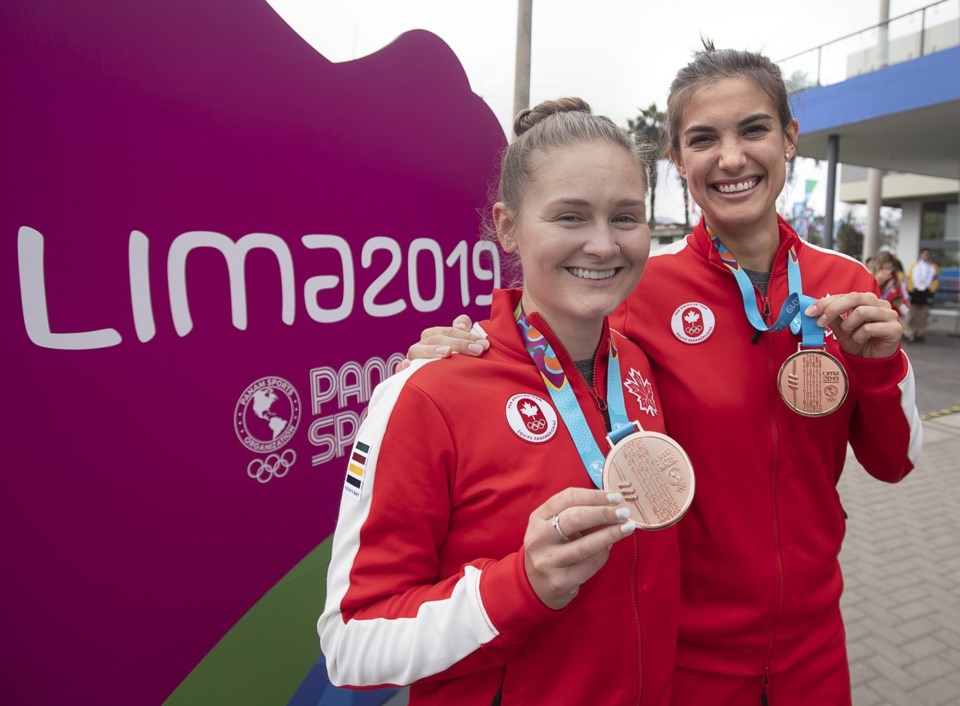TORONTO — When Squash Canada CEO Jamie Nicholls thinks about the impact Pro Squash Association tournaments have had in this country, a conversation with former world No. 1 Jonathon Power comes to mind.
"He mentioned to me one time, 'If you want to be the best in the world, you have to actually see the best in the world,'" Nicholls said. "That really resonated with me."
It's one of the reasons why Nicholls is so proud to see the growth of the Canadian Women's Open, which has been elevated to a silver PSA event this year in its second season. Play begins Sunday on the all-glass showcourt in the Allen Lambert Galleria at Brookfield Place, the same location where Power thrilled home crowds nearly a quarter-century ago.
Canadian No. 1 Hollie Naughton, fifth-ranked Nele Coll of Belgium and defending champion Amanda Sobhy of the U.S. are some of the headliners at the US$85,000 tournament, which features eight players in the top 20.
"I definitely think it's a very close field, I would say," Naughton said. "I think on any given day, anyone can beat anyone. So I think it's quite an exciting time for women's squash and for the Canadian Open to showcase it."
The sport is still riding high from last year's announcement that it was finally -- after several attempts -- being added to the Olympic program for the 2028 Los Angeles Games.
Naughton, from Mississauga, Ont., said the news was "very, very emotional" as she had dreamed about the possibility since she was a youngster.
"It definitely gave me the (jump) to keep going," said Naughton, now 30. "For me, I've definitely got my eyes set on it. That is the next big thing. I've competed at the Pan Am Games, the Commonwealth Games, and to top it off with an Olympic Games would be just unbelievable."
The Canadian Women's Open has moved from early spring to autumn on the calendar, allowing it to follow the recent U.S. Open and attract more top players.
Squash and flag football will make their Olympic debut in 2028 while cricket, baseball/softball and lacrosse will return to the program.
"I would say it was more relief than joy," Nicholls said of squash's inclusion. "Sometimes the losses remain with you longer than the wins. I would say I was just so relieved that all of those people for all these years that have supported the Olympic movement are finally rewarded.
"I have to say that since then, the excitement is palpable. People are talking Olympics in every conversation with squash."
A $25,000 Copper Classic men's tournament will run in conjunction with the women's tournament in Toronto. The men's draw features Canadian No. 1 David Baillargeon of Montreal and top-25 players Baptise Masotti and Gregoire Marche of France and Leonel Cardenas of Mexico.
The goal, Nicholls said, is to continue to elevate the tournament levels each year until platinum status is reached for both the women's and men's draws.
"Ideally by the time we're in the Olympics in 2028, we'll have an annual world-class event (here) every year," he said in a recent interview.
That would be welcome news for Canadian squash fans who enjoyed top-flight competition when the YMG Capital Classic (later the Pace Canadian Classic) was held in Toronto from 2000-08.
Power defeated longtime rival Peter Nicol in the inaugural edition of the tournament. Nicholls recently found the trophy from Power's 2000 win in a storage locker and said it will be repurposed and handed out this year.
The women's trophy also has some old-school flavour from a national tournament that was held in the 1980s.
"Now we've got these two old trophies that will show the history but also have some new names on them," Nicholls said.
National team members Nicole Bunyan of Victoria, Toronto's Salah Eltorgman, Winnipeg's Connor Turk, Toronto's Liam Marrison, Calgary's Brett Schille, Regina's Nikki Todd and Toronto's Niki Shemirani have all qualified for the event.
Three satellite clubs in the downtown area will host preliminary matches. Play continues through Thursday.
This report by The Canadian Press was first published Oct. 25, 2024.
Follow @GregoryStrongCP on X.
Gregory Strong, The Canadian Press



